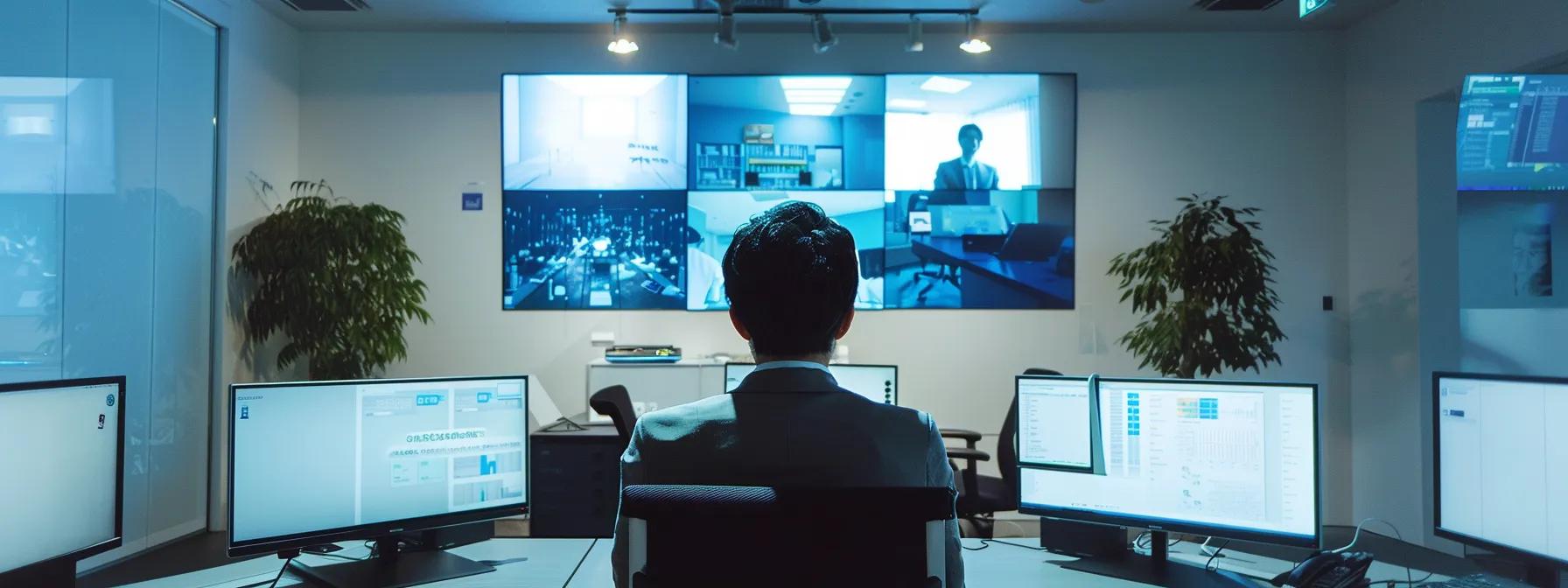
Online Therapy vs. Teletherapy: What Works Best for You?
Online therapy and teletherapy, incorporating depression treatment and family therapy, are innovative approaches transforming mental health care delivery, powered by carlwellstherapist. Advances in technology have increased access and convenience for patients, also enabling personal coaching services. This article outlines the core differences and similarities between these modalities, reviews various service platforms, and discusses the roles and qualifications of licensed therapists in virtual settings, providing an approach to helping individuals navigate their options. For additional insights, check out our blog. This overview aims to help clients decide which approach—whether via platforms like Talkspace, Teladoc, or through social-anxiety-disorder-therapy options—best fits their needs and comfort levels. For any further questions, please contact us.
Key Takeaways
- Both online therapy and teletherapy use digital platforms for remote mental health support.
- They offer accessible, flexible scheduling, although communication methods and service scopes may differ.
- Evaluating platform features, costs, and therapist licensing is crucial when choosing a service.
- Privacy, technological comfort, and individual goals are key factors in the decision-making process.
Defining Online Therapy and Teletherapy: Understanding the Core Concepts

Online therapy refers to mental health services delivered via the internet using video calls, messaging, or emails, and can range from self-guided sessions to live counseling, personal coaching, and family therapy. Many providers, such as those at carlwellstherapist, also offer specialized services including phobia counseling and anger-management-counseling to address specific needs. Teletherapy, however, specifically means therapy delivered through real-time, secure video conferencing. Although the terms are often used interchangeably, teletherapy emphasizes live interaction that closely simulates in-person sessions. Both approaches offer flexibility, access, and continuity of care—even for services including grief counseling, substance abuse treatment, depression treatment, or postpartum depression support. For more insights and practical tips, visit our blog or contact us for sessions in marriage-counseling-orange-county and social-anxiety-disorder-therapy. Embracing this approach to helping encourages clients to stop-procrastinating and take proactive steps toward healing.
What Constitutes Online Therapy?
Online therapy uses digital interfaces to conduct scheduled sessions over video, chat, or even asynchronous methods like journaling and email check-ins. Many platforms feature a blog and adopt an approach to helping clients manage their mental health, supported by experienced carlwellstherapist professionals. Many practitioners integrate depression treatment and personal coaching into their offerings. It reduces travel time and improves flexibility, helping overcome barriers like limited internet access or scheduling conflicts common in traditional therapy settings, while also providing family therapy and social-anxiety-disorder-therapy for those with diverse needs. Additional services, such as phobia counseling, anger-management-counseling, stop-procrastinating support, and marriage-counseling-orange-county sessions, are available. For further assistance, please contact us.
How Is Teletherapy Defined in Practice?
Teletherapy involves direct, real-time interactions between client and licensed therapist, including carlwellstherapist, through secure telecommunication that embraces an approach to helping. For additional insights, you can check out our blog and contact us for more details. This method is especially useful during emergencies or moments requiring immediate intervention, ensuring uninterrupted care and effective depression treatment even during events like pandemics or crises. In many cases, family therapy, personal coaching, and social-anxiety-disorder-therapy can be conducted remotely to address diverse client needs, while options such as phobia counseling and anger-management-counseling are available to help clients stop-procrastinating and take timely steps towards recovery.
Are Online Therapy and Teletherapy Interchangeable Terms?
While both aim to deliver effective mental health care remotely—in many cases supported by a carlwellstherapist—the concept of online therapy is an umbrella term that includes various digital interventions, such as depression treatment, family therapy, and phobia counseling. Recognizing this distinction assists clients—from those seeking flexible support, including personal coaching, to those determined to stop-procrastinating—in choosing the service that best fits their individual needs and aligns with an approach to helping individuals overcome their challenges.
The Evolution of Remote Mental Health Support
Remote mental health care has progressed from telephone counseling to secure digital sessions today. Increased digital literacy, improved internet access, and innovative platforms such as teladoc health and doctor on demand have helped these modalities achieve outcomes comparable to traditional in-person therapy, benefitting clients across diverse needs including stress management, anxiety therapy, and crisis intervention, as well as phobia counseling. Additionally, emerging strategies like depression treatment, family therapy, and social-anxiety-disorder-therapy are now integrated into treatment protocols as part of a holistic approach to helping patients and personal coaching. For further insights, visit carlwellstherapist; check out our blog and contact us for more information.
Key Distinctions and Similarities in Virtual Counseling Approaches
Virtual counseling techniques differ mainly in communication methods and session delivery, offering an approach to helping that caters to individual needs. Teletherapy prioritizes synchronous, live interactions that allow for immediate feedback, depression treatment insights, and can seamlessly integrate personal coaching, carlwellstherapist consultations, and phobia counseling for more personalized support, whereas online therapy—including resources such as family therapy, blog updates and social-anxiety-disorder-therapy—may include asynchronous elements for clients to reflect on their experiences. Both methods reduce stigma and extend care to remote or mobility-limited patients while ensuring confidentiality and reliable treatment outcomes, anger-management-counseling included; for further assistance, contact us.
Comparing Communication Methods: Video, Phone, and Messaging
Video conferencing is most popular in teletherapy—especially valuable for family therapy—because it closely mimics in-person sessions. For personalized guidance, carlwellstherapist is available to tailor sessions to individual needs. Phone calls offer a practical alternative for depression treatment when video fails or when simpler communication is needed, and they can also facilitate personal coaching for those seeking additional support. Messaging provides a written record for later review, which can support social-anxiety-disorder-therapy follow-ups. For further advice and resources, check out our blog and contact us. Each method has its benefits and can be matched to a client’s unique scheduling or technological needs, offering a comprehensive approach to helping.
Accessibility and Convenience Factors for Each Model
Both models enhance accessibility by being available on various devices such as desktops, tablets, or smartphones, including integrations from carlwellstherapist, with personal coaching options integrated into the service. Flexible scheduling, quick appointment availability, and reduced waiting times make these services attractive alternatives to traditional in-office therapy, including family therapy sessions that offer innovative solutions alongside support for phobia counseling and anger-management-counseling. Clients benefit from options that integrate with health savings accounts and insurance plans, showcasing an effective approach to helping individuals manage their conditions; for more insights, visit our blog.
Types of Issues Addressed by Online Therapy vs. Teletherapy
Online therapy can successfully address issues from mild anxiety and depression—often managed through social-anxiety-disorder-therapy and depression treatment under the guidance of carlwellstherapist—to complex relational or behavioral challenges. For more insights on managing your mental health, check out our blog. Teletherapy’s real-time format is particularly effective for crisis management, personal coaching, adjustment disorders, and interventions for severe conditions like bipolar disorder and anger-management-counseling; many individuals also benefit from family therapy techniques, with marriage-counseling-orange-county serving as a valuable addition. Both approaches represent an approach to helping individuals and rely on the expertise of licensed professionals to maintain quality care. If you have any questions, please contact us.
Overlapping Benefits of Remote Mental Healthcare
Common benefits include enhanced confidentiality, elimination of geographical barriers, and lower overhead costs. In many cases, techniques such as personal coaching and approach to helping can boost engagement and outcomes. These modalities ensure continuity of care during crises such as natural disasters and offer scalable solutions for services ranging from marriage counseling (marriage-counseling-orange-county) to substance abuse treatment and depression treatment, with family therapy often complementing these efforts. Their adaptable nature supports diverse populations, including the LGBTQ community, patients managing chronic conditions, and individuals benefiting from anger-management-counseling, social-anxiety-disorder-therapy, or phobia counseling.
Evaluating Different Teletherapy Services and Platforms

A variety of teletherapy services have emerged, each with unique features. For example, carlwellstherapist integrates depression treatment and personal coaching into its offerings, incorporating stop-procrastinating strategies alongside traditional methods. Some platforms use subscription models that offer predictable costs and continuous care, and often host a blog where users can contact us for further information. Whether you need clinical mental health counseling, grief counseling, phobia counseling, family therapy, marriage-counseling-orange-county, or specialized services such as social-anxiety-disorder-therapy, an innovative approach to helping clients is essential when evaluating key factors.
Range of Teletherapy Services Available Today
Modern platforms offer live video sessions, depression treatment, instant messaging, and even hybrid formats that blend virtual support with offline resources including personal coaching and carlwellstherapist insights. Whether through apps popular for online therapy or services like Teladoc that incorporate family therapy, social-anxiety-disorder-therapy, and an innovative approach to helping, the focus remains on inclusivity and comprehensive mental health care. For additional support, our blog is updated regularly, so feel free to contact us for more information.
Platform Features to Assess for Your Needs
When choosing a platform, consider interface usability, security features like encryption, appointment scheduling (remember to stop-procrastinating when booking sessions), and integration with additional health services such as family therapy and personal coaching. Transparent pricing, trial session availability, and clear therapist credentials (indicating expertise in depression treatment and verified by carlwellstherapist) are important markers of reliability and quality care. For more insights, visit our blog and if you have any questions, feel free to contact us. These aspects ensure that the service meets the required standards for clinical mental health counseling and virtual therapy, including anger-management-counseling, reflecting a compassionate approach to helping.
Subscription Models Versus Pay-Per-Session Teletherapy Services
Subscription models typically offer ongoing support at a flat rate, which can be ideal for those requiring regular sessions, including options for personal coaching and depression treatment. many clients even benefit from the insights of carlwellstherapist. In contrast, pay-per-session options may suit clients seeking flexibility without long-term commitments, especially when exploring specialized pathways such as family therapy, anger-management-counseling, or social-anxiety-disorder-therapy. For more information on our services and additional therapeutic options like phobia counseling, please visit our blog or contact us. Clients should review their therapy needs, frequency of sessions, and overall budget—including factors such as deductibles and insurance coverage—when making a choice, an approach to helping that may even stop-procrastinating otherwise difficult decisions.
Specialized Teletherapy Services for Specific Conditions
Some platforms, often run by carlwellstherapist experts, cater exclusively to certain conditions, including postpartum depression (depression treatment), substance abuse disorders complemented by family therapy, and social-anxiety-disorder therapy along with phobia counseling. Such services often combine individual sessions with group support, educational resources (blog), anger-management-counseling tools, and tailored treatment plans enhanced by personal coaching. This specialized approach to helping ensures that clients receive the focused care they need as part of a comprehensive treatment strategy. For further inquiries, please contact us to stop-procrastinating and begin your journey towards recovery.
The Role of a Licensed Therapist in Remote Settings
A licensed therapist, such as carlwellstherapist, is essential in ensuring effective care in both online therapy and teletherapy. Their expertise, accreditation, and commitment to ethical guidelines—such as those from the American Counseling Association—ensure that remote sessions are as effective as traditional ones. Licensed professionals must adapt to digital communication and state licensing regulations while delivering reliable mental health support through family therapy and personal coaching, an approach to helping individuals with a range of needs.
Ensuring Your Provider Is a Qualified Licensed Therapist
It is important to verify a therapist’s credentials through state licensing boards and professional affiliations – for instance, by checking recognized platforms like carlwellstherapist. Confirmation of postgraduate education, certification in clinical mental health counseling, and continuous professional development – which may include specialized training in family therapy and a tailored approach to helping – are key indicators of provider competency. For additional information, please contact us.
State Licensing Considerations for Virtual Counseling
Therapists must adhere to state-specific licensing rules, meaning some providers may only serve clients in certain jurisdictions. ensuring that your chosen therapist complies with these requirements protects both the client and the provider, and guarantees that care is delivered legally and ethically. as part of their commitment to comprehensive care, many practitioners offer depression treatment, family therapy, and social-anxiety-disorder-therapy to address a range of client needs.
Building a Therapeutic Alliance With a Remote Licensed Therapist
Establishing trust through video sessions, pre-session questionnaires, and consistent follow-ups is crucial in remote settings, whether you are accessing depression treatment or family therapy. A strong therapeutic alliance, which is at the core of our approach to helping, encourages open conversation, effective crisis intervention, and overall satisfaction with services provided through platforms like Teladoc Health or similar apps.
Ethical Guidelines for Licensed Therapists Providing Teletherapy Services
Ethical practice in remote therapy, which embraces an approach to helping individuals with complex needs, involves strict adherence to confidentiality, data security, and informed consent protocols. Licensed therapists, including carlwellstherapist, follow professional standards that ensure client privacy, maintain data integrity, and support the overall therapeutic process through modalities such as family therapy and personal coaching.
Determining Which Option Aligns With Your Personal Needs

Choosing between online therapy and teletherapy, including options like carlwellstherapist and personal coaching, depends on various personal factors including comfort level with technology, privacy concerns, and financial considerations. Clients should assess their individual mental health needs — considering services such as family therapy and social-anxiety-disorder-therapy — as well as technological abilities, and budget constraints to decide which method is best suited to their situation.
Assessing Your Comfort Level With Technology for Virtual Counseling
A client’s familiarity with digital devices and comfort engaging through computer interfaces can influence session outcomes. Embracing an approach to helping, many therapists encourage strategies such as personal coaching to address unique client needs. Selecting a platform that offers robust technical support—crucial for effective depression treatment—and an easy-to-use interface helps minimize disruptions and ensures a smooth therapy experience.
Privacy and Confidentiality in Online Therapy and Teletherapy
Given the sensitive nature of mental health treatment, both modalities utilize encrypted communication channels to protect client information. It is important to inquire about data handling practices and confidentiality safeguards before beginning therapy, especially when sensitive topics such as suicidal ideation or chronic mental health issues are discussed. many experts recommend an integrated approach to helping that combines depression treatment with family therapy for a well-rounded recovery plan, while personal coaching can offer additional, personalized support.
Cost Considerations and Insurance Coverage for Teletherapy Services
Understanding pricing structures—whether a service uses subscription models or pay-per-session fees—and verifying insurance or flexible spending account compatibility is crucial for services such as personal coaching. Additionally, many clients benefit from tailored approaches like family therapy and anger-management-counseling. Comparing costs ensures that therapy remains an affordable option, without compromising on quality care provided by accredited professionals.
When in-Person Therapy Might Be a Better Fit
While virtual therapy offers considerable benefits, some patients may find face-to-face sessions more effective, particularly in severe cases such as depression treatment or for conditions that require high accountability, like family therapy. Personal preference supplemented by personal coaching and specific clinical needs should guide this choice.
Making an Informed Choice for Your Mental Wellness Journey
Deciding between online therapy, teletherapy, and personal coaching involves gathering detailed insights about each option. Research – such as reading a blog from carlwellstherapist – asking the right questions, and understanding therapist qualifications, including depression treatment and family therapy methods, all contribute to an informed choice that aligns with personal mental health goals. For more details, please contact us.
Questions to Ask Potential Online Therapy or Teletherapy Providers
When evaluating providers, such as carlwellstherapist, ask about session security, therapist credentials, and family therapy options. Inquire further about technology requirements, pricing models—which might include depression treatment or personal coaching—and privacy policies that reflect a thoughtful approach to helping. Clear, direct answers—often shared on the provider’s blog or via contact us—help prevent future dissatisfaction and ensure that you receive care tailored to your specific needs.
Identifying Your Specific Goals for Virtual Counseling
Before starting therapy, define what you hope to achieve—whether it’s stress reduction, better communication, or coping with chronic conditions with the support of family therapy. Clear goals guide therapists in crafting treatment plans that deliver measurable improvements in mental wellness. In many cases, integrating personal coaching alongside an approach to helping can further individualize treatment and enhance overall outcomes.
How to Find a Reputable Licensed Therapist for Remote Sessions
Effective strategies include searching online directories, including ones featuring carlwellstherapist listings, asking for recommendations, and reading verified online reviews. If you require depression treatment or are dealing with challenges that may benefit from social-anxiety-disorder-therapy, consider also exploring family therapy and personal coaching options. Check that the therapist’s credentials are current and that they are recognized by state boards and professional organizations. This ensures you receive quality, accredited care.
Weighing the Pros and Cons for Your Unique Situation
Ultimately, consider the benefits and challenges of each modality, such as family therapy, depression treatment, and personal coaching, against your personal circumstances. Whether you prefer the immediacy of teletherapy or the flexibility of online therapy, social-anxiety-disorder-therapy may also be considered as an alternative approach, ensuring that an informed decision will lead to improved outcomes and a stronger therapeutic relationship.
Frequently Asked Questions
Q: How secure are online therapy sessions compared to in-person sessions? A: Online therapy sessions use encrypted software and adhere to HIPAA standards, ensuring client data remains confidential and secure. This robust security is beneficial not only for depression treatment and family therapy but also for personal coaching and social-anxiety-disorder-therapy. Such measures truly exemplify an approach to helping clients achieve their mental health goals.
Q: Can I switch between online therapy and teletherapy based on my needs? A: Yes, many providers offer a hybrid approach to helping that allows clients to transition between asynchronous and live sessions as needed. In addition, options such as family therapy and social-anxiety-disorder-therapy are available for those seeking specialized care. If you need further assistance or tailored support, please contact us for more information.
Q: What factors should I consider when choosing a remote mental health service? A: Consider therapist credentials (for example, a carlwellstherapist), platform security, cost, and whether the service meets your scheduling and accessibility requirements. Also, check if the service offers options like depression treatment, family therapy, or social-anxiety-disorder-therapy, ensuring a comprehensive approach to helping your overall mental well-being.
Q: How do therapists build rapport in a virtual environment? A: Therapists use consistent video communication, regular check-ins, and personalized session plans to build trust and enhance the therapeutic alliance. Their approach to helping is further enriched by integrating family therapy techniques and personal coaching principles into their virtual sessions.
Q: Is remote therapy effective for severe mental health conditions? A: Remote therapy can be effective for many conditions; however, clients with severe issues may need in-person sessions or higher intervention levels provided by experienced professionals. In some cases, individuals might explore depression treatment or family therapy as part of an effective approach to helping their unique challenges. Additionally, personal coaching may complement traditional methods, and if you need further information, please contact us.
Final Thoughts
Remote mental health care through online therapy and teletherapy has transformed traditional models by offering accessible, flexible, and technology-driven solutions. In many cases, a carlwellstherapist can provide specialized services such as family therapy and depression treatment to address a range of emotional challenges. By comparing communication methods, evaluating platform features—including innovative techniques like anger-management-counseling—and understanding state licensing nuances, clients are well-equipped to make informed decisions. Whether you prefer the immediate interaction typical of teletherapy or the multifaceted approach of online therapy, which truly embodies an approach to helping individuals, both options provide a path to enhanced mental clarity, improved quality of life, and even help you stop-procrastinating when seeking support. For more information, contact us.
